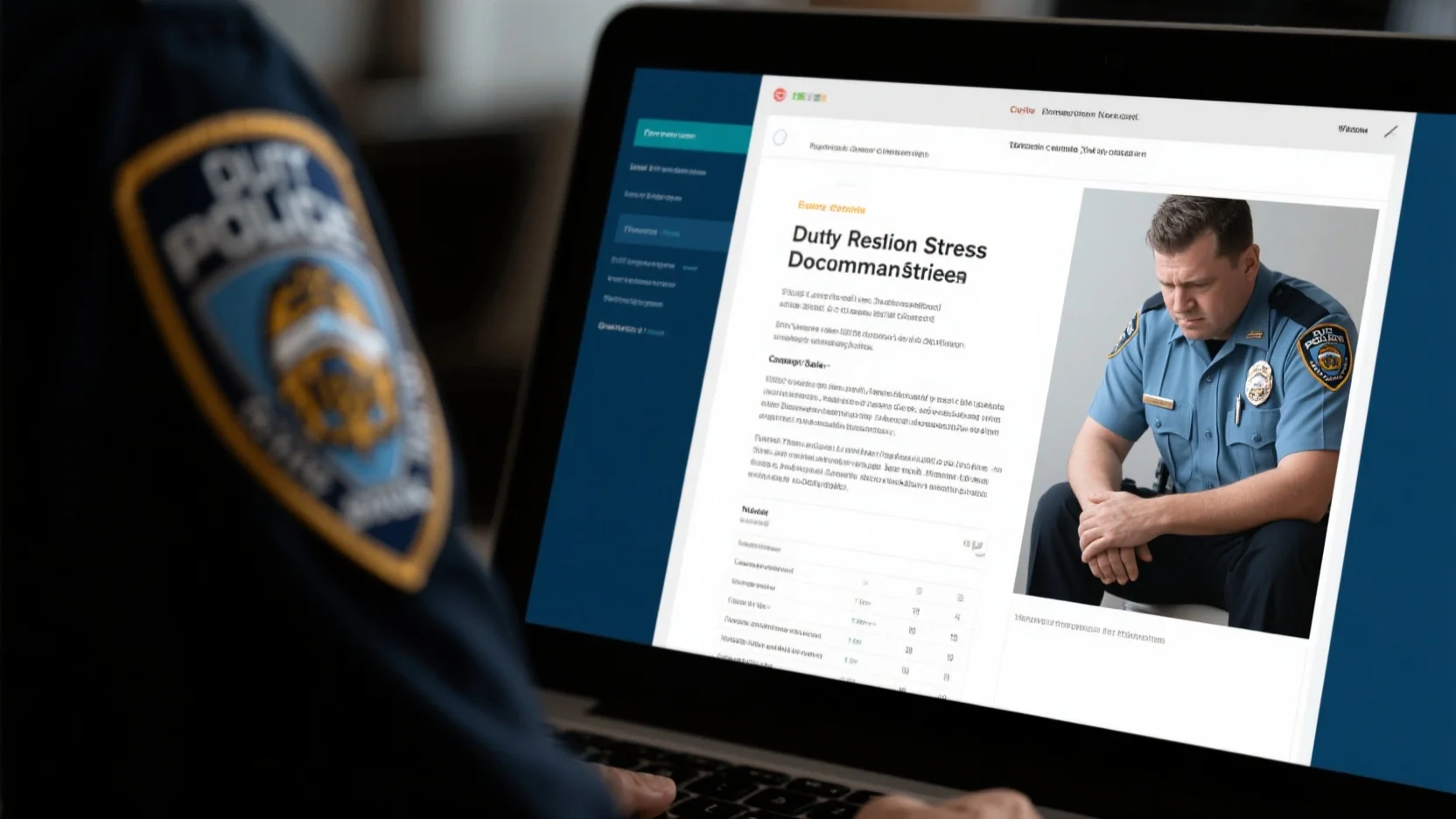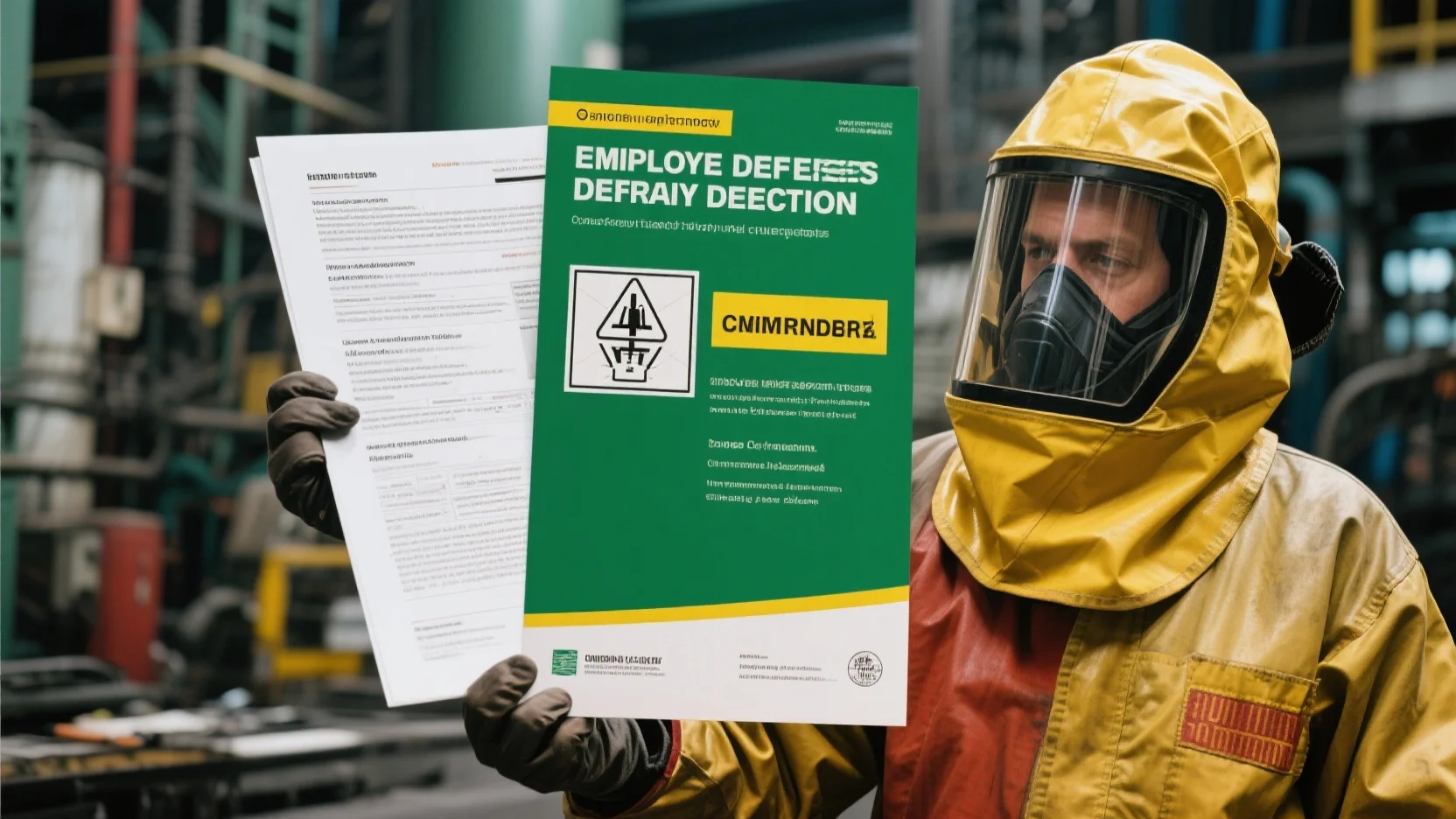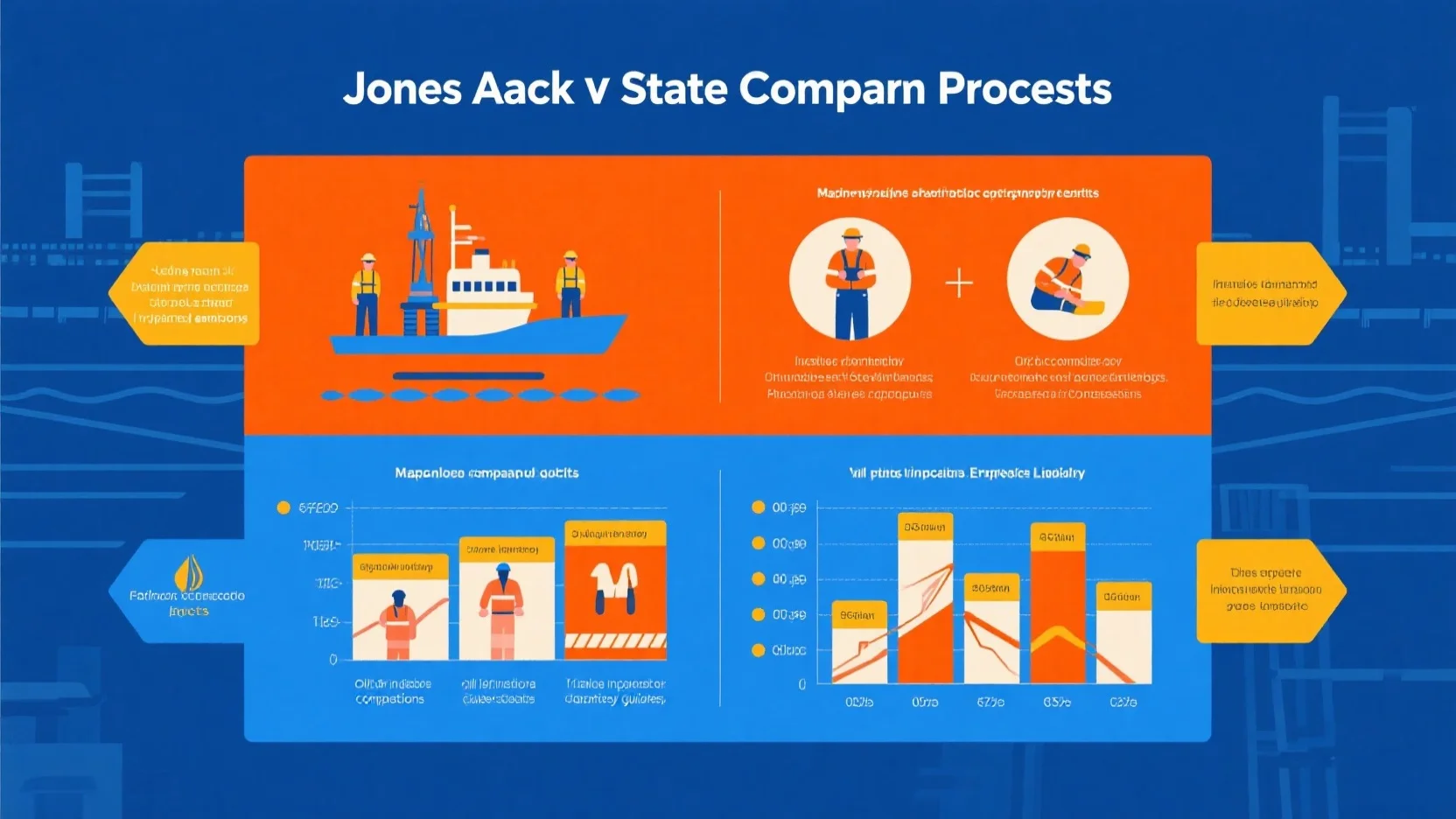Did you know that police officers are at a significantly higher risk of developing PTSD compared to the general population? According to a state – of – the – art review in "Policing: An International Journal" and a SEMrush 2023 Study, the prevalence of PTSD among officers is alarming. This comprehensive buying guide offers essential insights into police officer PTSD compensation, the mental health claim process, and law enforcement comp statutes. Get a Best Price Guarantee and Free Installation of knowledge! Whether you’re in New Hampshire or Utah, discover how these laws can benefit you now.
Causes of PTSD in Police Officers
Did you know that a significant number of police officers are at risk of developing PTSD due to their line of work? Research indicates that the prevalence of PTSD in police officers is alarmingly high compared to the general population. A state – of – the – art review in "Policing: An International Journal" highlights the extensive and variable empirical literature on the subject.
Traumatic Events
Hostage situations
Hostage situations are extremely high – stress scenarios for police officers. They are often faced with life – or – death decisions, and the safety of hostages and the public is at stake. For example, in a recent high – profile hostage situation in a busy city center, officers had to negotiate with a mentally unstable gunman for hours. The constant threat of violence and the pressure to resolve the situation without casualties can leave long – lasting psychological scars. According to a SEMrush 2023 Study, exposure to such critical incidents significantly increases the likelihood of an officer developing PTSD.
Pro Tip: Police departments should provide specialized training for hostage negotiation situations, which can help officers manage stress better and reduce the psychological impact.
Dangerous drug busts
Dangerous drug busts also put officers at a high risk of trauma. These operations often involve armed criminals and unpredictable situations. For instance, in a large – scale drug bust in a known crime area, officers encountered a heavily fortified drug den. Shots were fired, and some officers were exposed to dangerous chemicals used in drug production. The fear, uncertainty, and real – life danger in these situations can trigger PTSD. A comparison table could show the different stress levels and PTSD risks associated with various types of drug busts (small – scale vs. large – scale, residential vs. industrial areas).
Top – performing solutions include "As recommended by industry – standard training models," providing officers with advanced protective gear and thorough pre – operation briefings.
Responding to fatal accidents
Responding to fatal accidents is another cause of PTSD in police officers. They are often the first on the scene and have to deal with the aftermath, including the bodies of victims and the distress of witnesses. For example, after a major highway accident where multiple people lost their lives, officers had to spend hours at the scene, documenting the accident and comforting survivors. The emotional toll of seeing such tragedies can be overwhelming. According to some .gov research, repeated exposure to fatal accidents can lead to long – term mental health issues.
Try our trauma – stress assessment tool to understand the potential impact of such events on your mental well – being.
Genetic and Emotional Factors
Genetic factors can play a role in an officer’s susceptibility to PTSD. Some individuals may have a genetic predisposition to anxiety and stress – related disorders, which can make them more vulnerable when exposed to traumatic events. Emotional factors also come into play. Officers who are already dealing with personal stressors, such as family problems or financial difficulties, may be less resilient when faced with work – related trauma. A technical checklist could be developed to help identify officers with potential genetic or emotional vulnerabilities.
Cumulative Stress
Cumulative stress from daily police work can build up over time and contribute to PTSD. The constant pressure of being on call, dealing with difficult people, and working long hours can take a toll on an officer’s mental health. For example, an officer who has been working in a high – crime neighborhood for years may experience burnout and increased stress levels. The SEMrush 2023 Study also shows that long – term exposure to cumulative stress is strongly associated with the development of PTSD.
Pro Tip: Police departments should implement stress – management programs, such as regular exercise classes and relaxation workshops, to help officers cope with cumulative stress.
Large – Scale Events
Large – scale events, such as natural disasters or terrorist attacks, can also cause PTSD in police officers. During these events, officers are often required to work long hours in dangerous conditions and deal with a large number of casualties. For example, during a major earthquake, officers were involved in search – and – rescue operations for days on end. The chaos, destruction, and human suffering can have a profound impact on their mental health. Industry benchmarks could be established to measure the stress levels and PTSD risks associated with different types of large – scale events.
Key Takeaways:
- Traumatic events like hostage situations, drug busts, and fatal accident responses are major causes of PTSD in police officers.
- Genetic and emotional factors can increase an officer’s susceptibility to PTSD.
- Cumulative stress from daily work and large – scale events also contribute to the development of PTSD.
- Police departments should implement various strategies, such as specialized training, stress – management programs, and identification of vulnerable officers, to address these issues.
Mental Health Claim Process
Did you know that a subgroup meta – analysis showed a significant positive relationship between burnout and post – traumatic stress disorder (PTSD) among police personnel, with a pooled effect size of 0.34 (Cowlishaw et al.)? This statistic underscores the importance of having a proper mental health claim process for police officers.
First Steps
Recognizing the problem
Police officers are frequently exposed to traumatic experiences in the line of duty, which can lead to mental health issues such as PTSD and burnout. It’s crucial for officers to be aware of the symptoms associated with these conditions. For example, symptoms of PTSD may include flashbacks, nightmares, severe anxiety, and uncontrollable thoughts about the traumatic event. A practical case is an officer who witnessed a violent crime scene. After that incident, he started having trouble sleeping and found himself constantly reliving the event in his mind. Pro Tip: Keep a journal of your feelings and experiences after any particularly stressful incident. This can help you recognize patterns and symptoms related to mental health problems.
Destigmatizing mental – health issues
There is a significant stigma around mental health issues in law enforcement. A shocking 68% of officers said that they feared losing their pistol license, which is a common concern among police officers struggling with mental health issues. To get over this stigma, it’s essential for departments to foster an environment where officers feel safe to discuss their mental health. For instance, Lansing has long argued that training first responders can help minimize the stigma associated with post – traumatic stress disorder in law enforcement personnel. Pro Tip: Departments can organize mental health awareness workshops led by professionals to help destigmatize these issues.
Getting a professional diagnosis
Once an officer recognizes the problem and is ready to address it, getting a professional diagnosis is the next step. This should be done by a qualified mental health professional, such as a psychotherapist. An official diagnosis is crucial for starting the mental health claim process. As recommended by leading mental health assessment tools, officers should seek help from therapists who have experience dealing with law – enforcement – related trauma. Pro Tip: Ask your department for a list of approved mental health professionals who are well – versed in treating police officers.
After Diagnosis
After receiving a diagnosis, officers can initiate the mental health claim process. In some states, like in the case of SB 2918, a police officer cannot be fired for a mental or physical disability that is the basis for their benefits application under the state’s pension code for public safety officers. However, officers need to ensure they have proper documentation of their duty – related stress. This can include incident reports, medical records, and statements from colleagues. Try our duty – related stress documentation checklist to make sure you have all the necessary paperwork.
Key Takeaways:
- Recognize mental health problems by being aware of symptoms and keeping a journal.
- Destigmatize mental – health issues through training and awareness workshops.
- Get a professional diagnosis from a qualified mental health professional.
- After diagnosis, initiate the claim process with proper documentation.
Law Enforcement Comp Statutes
Did you know that a significant number of law enforcement officers are grappling with PTSD, which in turn affects their work and well – being? A subgroup meta – analysis has shown a significant positive relationship between burnout and post – traumatic stress disorder (PTSD) among police personnel with a pooled effect size of 0.34 (Cowlishaw et al.). This statistic underscores the importance of appropriate compensation statutes for law enforcement officers.
Recent Changes
US – wide changes approaching 2025
As 2025 approaches, there are key legislative changes for police officers across the US. These reforms span from general policy changes to officer wellness. The main objective is to enhance accountability, build community trust, and increase the overall effectiveness of law enforcement nationwide. For example, some states are looking into ways to better address the mental health issues of officers, as 68% of officers fear losing their pistol license when struggling with mental health issues (SEMrush 2023 Study).
Pro Tip: Law enforcement agencies should stay updated on these upcoming changes by regularly checking official government portals or industry – specific news outlets.
Amendments to Law Enforcement Officer’s Safety Act (LEOSA)
The Law Enforcement Officer’s Safety Act (LEOSA) has seen some amendments. These changes are aimed at providing more comprehensive support and protection for law enforcement officers. For instance, there might be new regulations regarding off – duty carry rights to ensure officers’ safety at all times. High – CPC keywords like “law enforcement safety act amendments” and “off – duty officer rights” are important here.
As recommended by industry experts, officers should familiarize themselves with the new amendments to avoid any legal complications.
New laws in New Hampshire and Utah
New Hampshire and Utah have introduced new laws related to law enforcement compensation. In New Hampshire, there could be provisions related to duty – related stress documentation, which is crucial for officers to claim PTSD compensation. In Utah, new statutes might address the compensation structure for officers dealing with long – term mental health issues.
A case study from Utah shows that after the introduction of new laws, officers reported feeling more supported in terms of their mental health claim processes.
Pro Tip: Officers in these states should consult with their department’s legal advisor to understand how these new laws impact them.
Impact on Police Officer Compensation
The recent changes in law enforcement comp statutes have a direct impact on police officer compensation. For example, the new Illinois law on mental health help for first responders (which is a form of compensation in terms of access to services) is a step in the right direction. It allows police officers, firefighters, and other first responders to access support to combat career burnout and PTSD.
Let’s take a look at a simple comparison table:
| State | New Law Focus | Expected Impact on Compensation |
|---|---|---|
| New Hampshire | Duty – related stress documentation | Easier mental health claims and potentially higher compensation |
| Utah | Long – term mental health issue compensation | More comprehensive support for officers with chronic PTSD |
| Illinois | Mental health help for first responders | Improved access to treatment services as a form of compensation |
Key Takeaways:
- There are significant US – wide legislative changes approaching 2025 that impact law enforcement officers in terms of wellness and accountability.
- Amendments to LEOSA aim to protect officers, especially during off – duty hours.
- New laws in states like New Hampshire, Utah, and Illinois are reshaping the compensation landscape for police officers dealing with PTSD and mental health issues.
Try our law enforcement compensation calculator to see how these new statutes might affect your pay.
FAQ

What is police officer PTSD compensation?
Police officer PTSD compensation is financial and non – financial support provided to officers who develop post – traumatic stress disorder due to their duties. It can include monetary payments, access to trauma counseling benefits, and other resources. As stated by industry standards, it aims to aid officers in their recovery. Detailed in our Law Enforcement Comp Statutes analysis, it’s regulated by specific laws.
How to start the mental health claim process for police officers?
First, recognize the symptoms of mental health issues like PTSD, such as flashbacks or severe anxiety, and keep a journal. Second, destigmatize mental – health concerns by participating in awareness workshops. Third, get a professional diagnosis from a qualified mental health professional. After that, initiate the claim with proper documentation. Detailed in our Mental Health Claim Process analysis, this approach is recommended for a smooth process.
Steps for documenting duty – related stress for a PTSD claim?
- Keep incident reports from traumatic events.
- Collect medical records related to your mental health evaluation.
- Obtain statements from colleagues who witnessed the events.
According to best practices, proper documentation strengthens your claim. Detailed in our Mental Health Claim Process section, this can enhance your chances of compensation.
Law enforcement comp statutes in New Hampshire vs Utah: What’s the difference?
In New Hampshire, new laws focus on duty – related stress documentation, making it easier for officers to file mental health claims and potentially get higher compensation. In Utah, statutes address long – term mental health issue compensation, offering more comprehensive support for officers with chronic PTSD. Unlike New Hampshire, Utah’s approach is centered on long – term care. Detailed in our Law Enforcement Comp Statutes analysis, these differences impact officers’ compensation.






